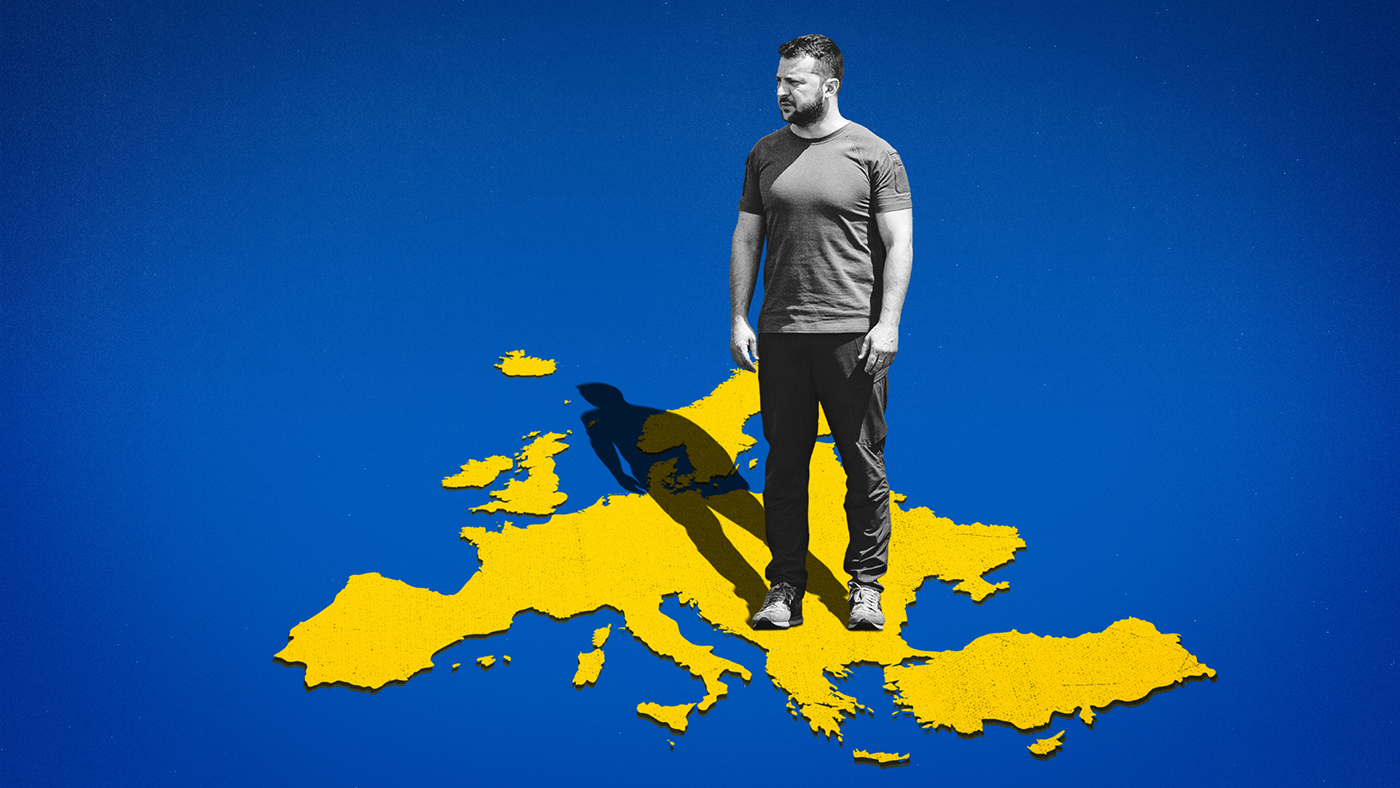‘Republican culture war zealotry has crossed the line as the US midterms approach’
Your digest of analysis from the British and international press

A free daily email with the biggest news stories of the day – and the best features from TheWeek.com
You are now subscribed
Your newsletter sign-up was successful
1. Republicans are overreaching in the culture war
Janan Ganesh in the Financial Times
on right-wing zeal
“Voters hear the chord, not the individual notes,” writes Janan Ganesh for the Financial Times. “Policies that poll well on their own terms can seem rash or even extreme when combined in great number”, to which Joe Biden’s gutter-level approval ratings stand testament. In the upcoming midterm elections, the “one hope” of the Democrats is that the Republicans “will commit a similar over-reach”. Much like “the crank you try to edge away from at a party” America’s right-wing is succumbing to a kind of “monomania” when it comes to their favoured subjects. “A winning conservatism is one that rolls its eyes at the cultural left and asks the average voter to ‘get a load of this’”, writes Ganesh. “Once it crosses the line into its own kind of zealotry, it shouldn’t assume that people will come along.”
The Week
Escape your echo chamber. Get the facts behind the news, plus analysis from multiple perspectives.

Sign up for The Week's Free Newsletters
From our morning news briefing to a weekly Good News Newsletter, get the best of The Week delivered directly to your inbox.
From our morning news briefing to a weekly Good News Newsletter, get the best of The Week delivered directly to your inbox.
2. Forcing civil servants back to the office is the opposite of ‘living with the virus’
Kit Yates in The Guardian
on hybrid working for mandarins
“Things are not the same as they were before the pandemic,” writes Kit Yates for The Guardian. But that hasn’t stopped Jacob Rees-Mogg, the minister for government efficiency, writing to all secretaries of state to ask them to encourage civil servants in their departments back into the workplace. “This blanket edict comes in direct contradiction to a report from the Institute for Government think tank,” writes Yates. “Reducing hybrid working opportunities, it suggests, will mean the government struggles to achieve its goals of competing with the private sector to recruit its preferred candidates for civil service positions, relocating centres of civil service away from the capital and reducing the size of its estate.” And more pressingly, “encouraging people unnecessarily into crowded work environments is not a good strategy for controlling Covid transmission, especially when rates are already extremely high, as they are now.” It seems that the phrase “learning to live with Covid”, has become a pass for ministers to remove “all Covid mitigations and return to pre-pandemic practices”. But this “regressive move” of forcing people back into busy workplaces will only “exacerbate our Covid problems”.
A free daily email with the biggest news stories of the day – and the best features from TheWeek.com
3. It’s idiotic to send willing workers all the way to Rwanda
Mark Piggott in The Times
on staff shortages
“A question for those backing Priti Patel’s proposals to fly migrants 4,000 miles to Rwanda: do you think Britain has a manpower problem?” writes Mark Piggott for The Times. “My experience over the past week suggests it does, which is why I find it strange that when young, fit adults arrive on our shores, rather than set them to work doing all the jobs we no longer wish to do, we offload them on to a country with no such shortages,” he wrote after a holiday repeatedly thwarted by staff shortages. “It’s all very well to claim that British people should be doing these jobs, but that misses the scale of the problem,” said Piggott. The Office for National Statistics reported a record 1.2 million job vacancies last November, but unemployment fell to 4.2% at the same time. Put simply: “Businesses can’t meet demand.” He concluded: “If the UK is unable to source enough workers at home to keep services going, does it really make sense to spend hundreds of millions of pounds removing people who want to work and pay taxes while their asylum claims are processed?”
4. We’re trapped in Tony Blair’s university nightmare
Madeline Grant in The Telegraph
on a New Labour hangover
“Beware a politician in hot pursuit of a legacy, for they are liable to say and do stupid things,” writes parliamentary sketchwriter Madeline Grant for The Telegraph. This week, former Labour prime minister Tony Blair “doubled down on one of the worst aspects of New Labour’s inheritance”, namely their flagship education policy which aimed to have 50% of school leavers attending university. “When you’re in a hole, stop digging, as the saying goes,” writes Grant. “Fat chance”. This week Blair “upgraded” his target to 70% of leavers entering higher education by 2040, up from the 53% it is now. “At the time, his Panglossian acolytes insisted the policy would boost the national skillset and turbo-charge social mobility,” continued Grant. But a “growing body of thought now recognises that the original target was a mistake,” she writes. Remarkably little has been done to reverse the effects of the current system, says Grant, for a “simple and depressing” reason: “it is just too difficult to confront the appalling incentives and vested interests which underpin the status quo.”
5. Why we admire Zelenskyy
Bret Stephens in The New York Times
on leadership
“Why do we admire Volodymyr Zelenskyy? The question almost answers itself,” writes Bret Stephens in The New York Times. “We admire him because, in the face of unequal odds, Ukraine’s president stands his ground. Because he proves the truth of the adage that one man with courage makes a majority,” he writes. “Because he shows that honor and love of country are virtues we forsake at our peril”. And we admire Zelenskyy “because he has restored the idea of the free world to its proper place”, Stephens continues. “The free world isn’t a cultural expression, as in ‘the West’; or a security concept, as in Nato; or an economic description, as in ‘the developed world.’ Rather, “membership in the free world belongs to any country that subscribes to the notion that the power of the state exists first and foremost to protect the rights of the individual. And the responsibility of the free world is to aid and champion any of its members menaced by invasion and tyranny,” he continues. “As it goes for Ukraine, so, eventually, it will go for the rest of us.”
-
 How Democrats are turning DOJ lemons into partisan lemonade
How Democrats are turning DOJ lemons into partisan lemonadeTODAY’S BIG QUESTION As the Trump administration continues to try — and fail — at indicting its political enemies, Democratic lawmakers have begun seizing the moment for themselves
-
 ICE’s new targets post-Minnesota retreat
ICE’s new targets post-Minnesota retreatIn the Spotlight Several cities are reportedly on ICE’s list for immigration crackdowns
-
 ‘Those rights don’t exist to protect criminals’
‘Those rights don’t exist to protect criminals’Instant Opinion Opinion, comment and editorials of the day
-
 Russia's Crimea fleet shipyard on fire after Ukrainian missile strike
Russia's Crimea fleet shipyard on fire after Ukrainian missile strikePhotos and videos showed huge explosions and raging fires at the Sevastopol Shipyard
-
 Zelenskyy sacks Ukraine ambassador to UK after sarcasm row
Zelenskyy sacks Ukraine ambassador to UK after sarcasm rowSpeed Read Vadym Prystaiko accused his boss of an ‘unhealthy sarcasm’ in response to British defence secretary Ben Wallace
-
 Donald Trump indicted again: is latest threat of prison a game changer?
Donald Trump indicted again: is latest threat of prison a game changer?Today's Big Question The former president ‘really could be going to jail’ but Republicans ‘may not care’ say commentators
-
 Mickey Mouse vs. GOP: fallout continues from battle between Disney and DeSantis
Mickey Mouse vs. GOP: fallout continues from battle between Disney and DeSantisfeature With Republican challenger set to launch 2024 presidential bid, picking a fight with Mickey Mouse appears to have backfired
-
 How fruitful was Zelenskyy’s European tour?
How fruitful was Zelenskyy’s European tour?Today's Big Question Ukraine’s president visits Rome, Berlin, UK and Paris in bid to increase the supply of weapons from allies
-
 How conservatives have moved to undermine federal authority
How conservatives have moved to undermine federal authorityThe Explainer What has the GOP done to try and make government smaller?
-
 Jack Teixeira: how 21-year-old airman became alleged Pentagon leaker
Jack Teixeira: how 21-year-old airman became alleged Pentagon leakerUnder the Radar Suspect’s arrest might have ‘exposed’ a larger US national security problem
-
 Stormy Daniels claims Trump has ‘been spanked’
Stormy Daniels claims Trump has ‘been spanked’feature And other stories from the stranger side of life